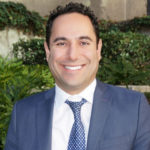
San Luis Obispo, CA – In the early hours of Thursday morning, April 18, 2024, a suspected driver under the influence crashed through the fence of a Caltrans facility in San Luis Obispo, according to the San Luis Obispo Tribune.
The incident occurred near the intersection of Madonna Road and Higuera Street, where the SUV veered off the road and collided with a Caltrans dump truck after crashing through the fencing surrounding the repair work yard.
The San Luis Obispo Police Department shared details of the crash on social media, noting significant damage to the front end of the SUV and a sizable hole in the fencing around the Caltrans work yard. The department confirmed that the driver was arrested on suspicion of DUI, although the individual’s name was not disclosed.
Additionally, the SUV’s passenger sustained moderate injuries and was transported to a local hospital for medical treatment.
Personal Injury Claims
When the actions of reckless drivers lead to injuries for others, the cost of caring for those injuries should not fall upon their victims. Filing a claim with the insurance provider of the at-fault driver can offer compensation to help cover medical bills and time taken off of work to recover from injuries.
However, insurance companies always have it in their interests to deny or minimize all claims they receive, which is why the help of a knowledgeable personal injury attorney can make all the difference.

Martin Gasparian is the founder of Maison Law, a California Personal Injury Law Firm. Martin is a graduate of Georgetown University Law School and has been practicing law in California 2004. His practice focuses on helping injury victims know their rights and recover just compensation.








